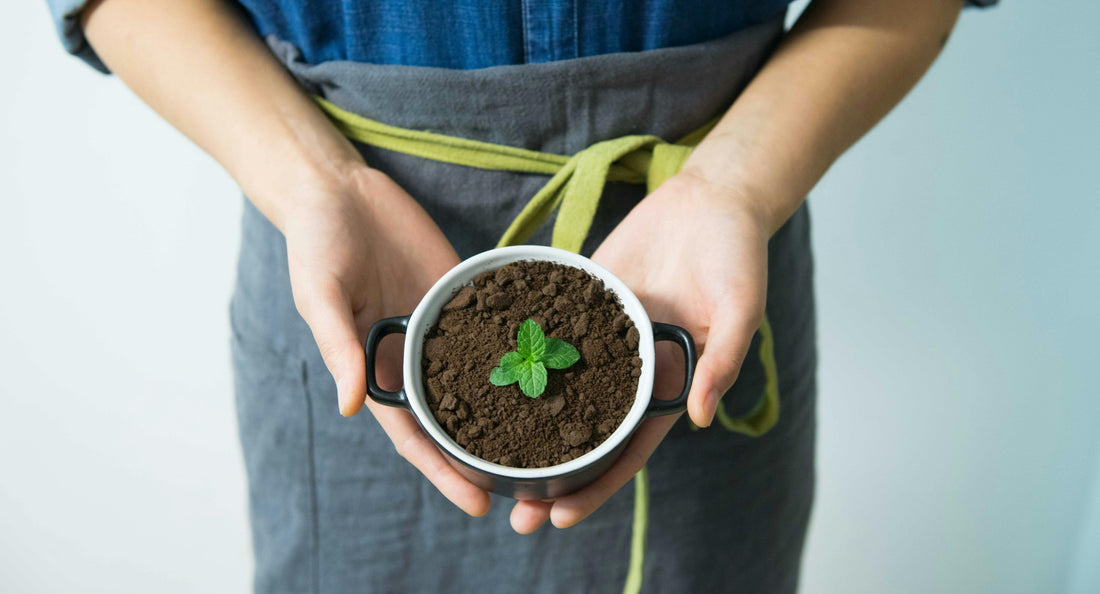
Are Coffee Grounds Good for Plants? The Pros and Cons
Share
If you're looking for ways to improve the health of your plants, you might have heard that coffee grounds can be a great addition to your garden. But are they really beneficial? Let’s take a closer look at the pros and cons of using coffee grounds for plants, backed by data and research.
Pros of Using Coffee Grounds for Plants
-
Rich in Nutrients Coffee grounds are packed with essential nutrients, including nitrogen, potassium, and phosphorus, which are key components of healthy plant growth. Studies show that used coffee grounds contain around 2% nitrogen by weight, which can boost soil fertility and promote strong, green growth.
-
Organic Matter Coffee grounds are an excellent source of organic matter, which improves soil structure. Organic matter helps with soil aeration, drainage, and water retention—critical factors for healthy roots. When added to compost or directly into the soil, coffee grounds can help break up heavy clay soils.
-
Attracts Earthworms Earthworms love coffee grounds, and having more earthworms in your soil is a great thing. They help break down organic matter and improve soil quality. A study from the University of Melbourne found that earthworms significantly increased in areas where coffee grounds were applied, improving soil fertility.
-
Pest Deterrent Some gardeners claim that coffee grounds help repel pests like slugs and snails due to their sharp texture and caffeine content. Research suggests that caffeine can act as a natural pesticide, which may help protect your plants from pests.
Cons of Using Coffee Grounds for Plants
-
Acidity While fresh coffee grounds are acidic (with a pH of around 4.5-6.0), used coffee grounds are closer to neutral after brewing. However, some plants, like tomatoes, may not tolerate even small amounts of extra acidity in the soil. For plants that prefer neutral to alkaline soil (like lavender or broccoli), coffee grounds might not be ideal.
-
Potential to Block Moisture Coffee grounds can compact and form a dense layer on the soil surface if used in large quantities or left in clumps. This can block moisture and air from reaching the roots, which could stunt plant growth. It’s important to mix coffee grounds with other organic materials to avoid this problem.
-
High Caffeine Levels While caffeine can be beneficial as a natural pesticide, it can also inhibit plant growth if applied in excess. According to a study from the University of Nevada, high levels of caffeine in soil can be toxic to certain plants. So, it’s best to use coffee grounds in moderation, especially around seedlings or sensitive plants.
Here’s a bar chart that visually represents the pros and cons of using coffee grounds for plants:
- Pros: Coffee grounds are rich in nutrients, improve organic matter in the soil, attract earthworms, and help deter pests.
- Cons: They may increase soil acidity, block moisture when compacted, and high caffeine levels can be harmful if used excessively.
This chart shows that coffee grounds can be very beneficial when used correctly but come with a few risks, so it's important to apply them in moderation based on your plants' needs.

Follow-Up Questions You Might Have
-
Are there other household uses for coffee grounds? Yes! Coffee grounds have many other household benefits:
- Composting: Coffee grounds are a great addition to your compost pile, providing a "green" nitrogen-rich material that balances "brown" carbon-rich materials like leaves.
- Deodorizer: Place used coffee grounds in the fridge or freezer to absorb unwanted odors.
- Cleaning Scrub: Their coarse texture makes coffee grounds an excellent abrasive cleaner for pots, pans, and grills.
- DIY Fertilizer: Coffee grounds can be mixed with eggshells to create a nutrient-packed fertilizer.
-
What plants benefit the most from coffee grounds? Plants that thrive in slightly acidic soil, such as blueberries, azaleas, roses, and hydrangeas, may benefit the most from the small acidity boost and nutrient content of coffee grounds.
-
How much coffee ground should I use in my garden? Moderation is key. Mix coffee grounds with other organic material, such as compost or mulch, rather than applying them directly to the soil. Adding about a 1/2 inch layer to your compost or garden soil every few weeks is generally safe.
Coffee grounds can be beneficial for your plants if used correctly. They offer nutrients, improve soil structure, attract helpful earthworms, and can even deter pests. However, they should be applied in moderation, and it’s important to consider the needs of your specific plants to avoid problems like excessive acidity or moisture blockage.
By using coffee grounds wisely, you can boost the health of your garden while recycling a household waste product!

